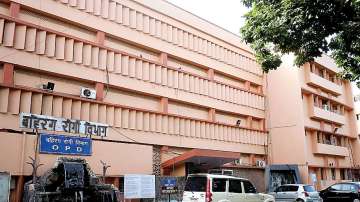OPDs across India shut today. Here's why | LATEST
OPDs in government hospitals across the country will be closed today in protest over the National Medical Commission (NMC) Bill which doctors say will encourage quacks.
OPDs in government hospitals across the country will be closed today in protest over the National Medical Commission (NMC) Bill which doctors say will encourage quacks.
The IMC Bill was passed unanimously passed in the Lok Sabha on Monday amid protests by the Opposition who called it an act of "diluting power" from the doctors' fraternity to the government. The government, however, said the Indian Medical Council (Amendment) Bill 2019 is "pro-public" and it would bring down the cost of medical education. The bill will now go to the Rajya Sabha to cross its final hurdle before becoming a law.
The Indian Medical Association (IMA) has called for a nationwide 24-hour withdrawal of non-essential services on Wednesday to register protest against the bill. Demonstrations and hunger strikes will be held in all states. The IMA has asked medical students to boycott classes in solidarity.
On the other hand, the Federation of Resident Doctors Association (FORDA) and the Resident Doctors Association (RDA), AIIMS, have asked members to wear black badges in protest.
The non-essential services including OPDs will be shut from 6 a.m. on Wednesday till 6 a.m. on Thursday. Emergency, casualty, ICU and related services will function normally.
The RDA wants the bill to be amended, else it will lead to a "deterioration in standards" in medical education, and "degradation of healthcare services".
"Section 32 of the NMC Bill provides for licensing of 3.5 lakh unqualified non-medical persons to practise modern medicine. The term Community Health Provider has been vaguely defined to allow anyone connected with modern medicine to get registered in NMC and be licensed to practise modern medicine," said R.V. Asokan, Secretary General, IMA.
"This would mean that all paramedics including pharmacists, nurses, physiotherapists, optometrists and others are becoming eligible to practise modern medicine and prescribe independently. This law legalizes quackery," said Asokan.
What does the IMC Bill proposes to do:
The Bill proposes a common final-year MBBS examination, known as National Exit Test (NEXT), for admission to post-graduate medical courses and for obtaining a licence to practice medicine.
Besides this, the National Eligibility-cum-Entrance Test (NEET), common counselling and NEXT would be applicable to institutes of national importance like AIIMS in order to achieve a common standard in medical education in the country.
The Bill provides for supersession of Medical Council of India (MCI) for a period of two years with effect from September 26, 2018. It had lapsed after it was introduced in 16th Lok Sabha. The Cabinet had approved the Bill on June 12 to replace the Indian Medical Council (Amendment) Second Ordinance, 2019 through an Act of Parliament.
ALSO READ | OPDs to remain shut in India on July 31 against Medical Bill
ALSO READ | BHU doctors hold strike demanding implementation of wages under 7th Pay Commission
